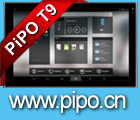Oppo showcases their technology that allows 5X zoom inside a smartphone body. The technique used involves a periscope-style structure that diverts light through a prism and onto a wide-angle lens, that allows for a claimed lossless 5X zoom. It is demonstrated on a prototype Oppo phone using a 6″ QHD with Oppo VOOC fast charging.
$799 Lenovo Yoga 520
Lenovo Yoga 520 is a 14″ or 15″ convertible laptop with a FHD display, Kaby Lake processors, and Nvidia GeForce 940MX GPU. There is room for both an SSD and HDD, with ram options up to 16 GB. There is also a fingerprint reader for security. There is an activie digitizer pen. Prices for the Yoga 520 series range from $799 and up depending on region and configuration also with the optional stylus pen input and an optional fingerprint sensor.
Qualcomm X50 modem for 5G New Radio
The next step in cellular technology, 5G, is demonstrated here by Qualcomm. It is in the research phase, and the current application shown involves the broadcasting of RF power to a moving target at a frequency of 28GHz. A major limitation of 5G is the easy dissipation of the signal when faced with even minor obstructions, which Qualcomm aims to overcome by installing multiple towers and handing over users between them.
Qualcomm Snapdragon 835 with Gigabit LTE
Qualcomm demonstrates their X16 Cat16 Gigabit LTE modem integrated in the upcoming Sony Xperia XZ Premium using Qualcomm Snapdragon 835 which features 4×4 MIMO (multiple input multiple output). The phone uses 4 LTE antennaes instead of the usual 2 to boost throughput speeds to 1Gbps using carrier aggregation. The technology is expected to be more power efficient since the faster downloads would finish quicker, effectively lessening the time cellular data is used.
SD Card UHS-III with 624MB/s and microSD A2 (Application Performance Class 2)
SD Card Association, the standard organization of SD cards, just released two new specification meeting new market needs.
The first is Application Performance Class 2 (A2) – a new performance class that consider Random & Sequential performance meeting the new need of storing and running applications from cards allowing means to consumers which cards to purchase in point of sale meeting their products needs. Coming after A1, introduced last November, A2 is a higher level of performance enabled by new features supported now by SD – like command Queuing and Cache.
The second enhancement of the standard is UHS-III. It is enhanced physical interface that enables byte rate of up to 624MB/s!
I am hoping that some device makers will implement devices with 2 or more microSD slots to increase the total available maximum capacity and even doubling the speed if a parallel access can be allowed.
Rockchip OP1 in Samsung Chromebook Plus
Rockchip made the OP1 the world’s most optimized Chromebook processor. OP1, also known as RK3399-C, Hexacore dual ARM Cortex-A72, quad ARM Cortex-A53 with Mali-T860MP4 GPU. Rockchip is the only chip maker which has been optimizing processors for Chromebooks over the past 3 years, with all the lessons they learned with the RK3288 quad-core ARM Cortex-A17 which shipped in several Chromebooks in 2015, they were able to improve on that, optimize every detail and in collaboration with Google and Samsung.
Sony Xperia Touch, projector turns any table or wall into a 23″ Android tablet
Sony Xperia Touch is the world’s coolest Smart Android projector which turns any surface into a 23″ touch display using infrared, IR camera sensors, it also works projected onto a wall. Using a 1.6GHz Snapdragon 650 Hexacore dual ARM Cortex-A72 and quad ARM Cortex-A53, 3GB RAM, 32GB Flash. It uses USB Type-C and also has a Micro HDMI connector. It’s going to be released soon at about $1500. I have been waiting for a decade asking all the potential manufacturers when they would make this type of product. It’s going to be even nicer when this can get integrated into a pico projector the size of a Smartphone, or even integrated into a smartphone.
Sony Xperia XZ Premium, 4K HDR, Qualcomm Snapdragon 835
Sony Xperia XZ Premium is Sony’s new high end Android smartphone with a premium design and premium features such as being the world’s first smartphone with a 5.46″ 4K HDR display, uses Qualcomm Snapdragon 835, 4GB RAM, 64GB Flash, MicroSD, single or dual SIM. With a 19Megapixel back camera and 13Megapixel front camera with ultra slow motion recording support of 960fps in 720p. The XZ Premium can also be used for some pretty impressive 4K HDR VR.
Vuzix Blade AR3000, the coolest Augmented Smart Glasses yet with see-through waveguide technology
Vuzix AR3000 are the coolest Smart Glasses I have yet seen, with an awesome see-through waveguide technology with dual ultra-slim “Cobra” 0.2″ WVGA DLP display engines, using projection through a prism, AR3000 runs Android on a Quad-core Marvell ARM processor, touch pad, noise canceling mics, and two HD cameras with one for gesture support. The wearer will be able to reach out and manipulate virtual 3D objects overlaid in the real world. Ultimately positional information will be captured to allow 3D objects to effectively behave and interact with real-world objects. AR3000 has Wi-Fi and Bluetooth to connect and interact through the cloud or the smartphone, tablets and PCs. Battery life ranges from 1.5 to 2.5 hours but can easily be tethered to any USB Powerbank to extend the battery life indefinitely. Vuzix would like to be able to ship this in a volume that can bring the price below $500.
DisplayPort comes with Qualcomm Snapdragon 835 with alt-mode Type-C directly on the SoC
DisplayPort is a standard for high resolution diplays. DisplayPort 1.4 can support up to 8K resolution at up to 30 hertz on a single cable and 60 hertz over two cables, here showing it off running on an upcoming announced Dell 8K 32″ display. DisplayPort can also support HDR or high dynamic range.
If a device has USB type C and the necessary hardware it can output displayport video through Type C. Through USB Type C a device can be charged while outputting video and being connected to a USB hub. Display port alt mode can switch to HDMI for HDMI displays. The Snapdragon 835 has displayport functionality so more devices in the future should have it. Mobile devices in the future could potentially Run multiple display monitors through a dock.
A dock using High Bit Rate 3 (HBR3) over DisplayPort 1.4 can output to multiple 4k monitors.
Qualcomm Snapdragon 835
Quaclomm Snapgragon 835 is Qualcomm’s fastest ARM processor ever, possibly the world’s fastest Smartphone ARM Processor yet. Built on amazingly small 10nm, Snapdragon 835 is 35% smaller and offers power efficiency gains of up to 35% over the previous generation Snapdragon 821 processor. Gigabit LTE is available through the X16 modem and multi-Gigabit speeds over 802.11ad, integrated 2×2 11ac MU-MIMO Wi-Fi. Quick charge 4.0 charges 20% faster with up to 30% more efficiency. Snapdragon 835 supports VR and AR such as Project Tango. Snapdragon 835 is a semi custom ARM processor “based on ARM Cortex Technology” and featuring 8 Qualcomm Kryo 280 processor cores and Qualcomm’s newest Adreno 540 GPU. Adreno 540 offers 25% faster graphics rendering and 60x more display colors than previous Adreno GPU. The Snapdragon 835 will be able to run Windows 10 with x86 apps emulation support.
$299 Gemini PDA, QWERTY keyboard, PSION style, Helio-X25 Deca-core, 5.7″ QHD, now on Indiegogo
Interview with the Gemini PDA team of Planet Computers at MWC 2017, presenting the awesome looking Gemini PDA, designed by the PSION designer Martin Riddiford, with fully integrated tactile QWERTY keyboard, Android 7 and Linux dual-boot. 4G LTE, WiFi, Bluetooth, dual USB Type-C. They’ll have 2 versions, one WiFi only starting at $299 and the other fully equipped with WiFi and 4G starting at $349 on Indiegogo. the final retail price might be more if they can get support to get it mass manufactured, perhaps at around $599. With the giant 8000mAh battery, it will have two weeks of stand-by time or 12 hours of talk time. With the fully tactile keyboard that is recognised as the smallest keyboard for finger touch typing. Dual side mounted speakers, Integrated Voice Assist button, SD card slot. The display will be a 5.7″ 2880×1440, 564ppi, 18:9 aspect ratio display (the same that LG is using in the LG G6).
Masayoshi Son Keynote at MWC 2017
Masayoshi Son, CEO and Founder of SoftBank which is owner of ARM since September 2016, is giving the opening keynote at the 2017 Mobile World Congress in Barcelona. You can also watch the official video of this keynote here. On his way out of the keynote area I was able to do my 1 minute Interview with Masayoshi Son which you can watch here.
Android Continuum: OXI by Auxens with Laptop Dock (Nexdock) with Vernee Apollo 2 on MediaTek X30
At the Vernee booth, as Vernee is the first to announce their upcoming 10nm Vernee Apollo 2 smartphone, running on the Helio-X25 in the Vernee Apollo, they are introducing their French startup software partner Auxens presenting the OXI Android OS Android Continuum platform! OXI is a slightly modified Android OS (adding in a few extra APIs to the normal Android firmware), it can display a desktop-like user interface with multitask features such as multi resizable windows, desktop, notifications, “Start menu” and more. It can also display this interface on the external display using DisplayLink, wireless (miracast or chromecast) or by mhl or slimport. Meanwhile the smartphone screen is still completely usable and independent, with regular Android. OXI is compatible with any current Android app. It doesn’t require any specific action from the apps developers.
Auxens has posted some more info in some posts are at:
https://forum.xda-developers.com/android/general/rom-oxi-smartphone-computer-oneplus3-t3558293
In French: http://forum.frandroid.com/topic/254304-alpha-oxi-et-le-smartphone-devint-pc/
http://www.phonandroid.com/forum/oxi-et-le-smartphone-devint-pc-t166635
MediaTek Helio X30, 10nm Tri-Cluster 10-core dual ARM Cortex-A73, quad ARM Cortex-A53, quad ARM Cortex-A35
MediaTek’s Tri-Cluster 10-core design features dual-core ARM Cortex-A73 at up to 2.5GHz, quad-core ARM Cortex-A53 at up to 2.2GHz and quad-core ARM Cortex A35 at up to 1.9GHz, with some really interesting features including low heat, high performance, 4K HDR, 4G LTE-Advanced WorldMode modem that uses 3x Carrier Aggregation with performance of 450MBit/s.
MediaTek Helio X30 increases performance by up to 35% and saves power by up to 50% over the MediaTek Helio X20.
CorePilot 4.0 with Centralized, Intelligent Task Scheduling, Thermal The 10nm fabrication by TSMC increases performance by up to 22% and saves power by up to 40% versus 16nm.
The 450MBit/s with 3x Carrier Aggregation downstream and 150Mbit/s with 2x Carrier Aggregation upstream for high volume content streaming and reliable connectivity. Category 10 4G LTE-Advanced WorldMode modem features new ETM 2.0 and TAS 2.0 technologies that saves battery power in everyday use by up to 35%, and up to 45% on multimedia specific scenarios.
X30 features Imagiq 2.0 with two 14-bit ISPs supporting 16+16MP dual camera functionality allows such as wide+zoom combination lenses allow real-time depth of field effects, fastest auto exposure, improved real-time denoise in low-light conditions. X30 Vision Processing Unit (VPU) paired to the Image Signal Processors (ISP) that provides a dedicated processing platform for numerous camera features, freeing up the CPU and GPU and saving power. Key advantages include:
– Programmability and Flexibility: The VPU provides a platform that allows brands the ability to customize camera functionality and drive product differentiation.
– Huge Power Reduction: The VPU is a dedicated camera-assisting hardware unit it has the ability to perform real-time processing functions, that were typically assigned to CPU or GPU, with only 1/10th power usage.
– Performance Boost: The VPU can still be used in isolation or as part of a team with the CPU/GPU, employing heterogeneous computing on same memory subsystem for advanced system or multi-application/function tasks.
The Helio X30 is the World’s first mobile SoC to bring a power efficient, hardware-based HDR cinema viewing experience to mobile devices. While other newly announced 4K HDR Smartphone SoCs might be doing the 4K rendering work in software, the X30 does it in hardware. 4K HDR10 standard offers a dynamic range of up to 10,000 nits. Paired with the latest, premium display technologies yields a never-seen-before quality and a true-to-life viewing experience.
Imagiq’s Dual Camera Zoom offers 2x optical zoom in a super slim form factor.
ClearZoom and Temporal Noise Reduction (TNR) technologies enable a sharp, crisp digital zoom up to 10x magnification.
Works for both video and photography.
MiraVision EnergySmart Screen is MediaTek’s advanced power saving technology for mobile displays, reducing power consumption (up to 10% of device’s total power or up to 25% of panel power, depending on brightness) while preserving viewing experience.
Instant AE
MediaTek Instant Auto Exposure (AE). The dedicated Camera Control Unit (CCU) hardware delivers considerably faster, automatic exposure adjustment when environmental lighting conditions change suddenly. AE convergence speed is up to twice as fast as competitive auto exposure performance.
Up to 8GB LPDDR4X
4×16-bit LPDDR4X 1866MHz memory is up to 50% more power efficient than previous generation LPDDR3, while also delivering up to 50% more performance.
Unique GPU Design: Deep MediaTek-Imagination Co-operation
The fully customized IMG PowerVR 7XTP-MP4 @ 800MHz is designed for lowest power usage while still delivering incredible performance. It saves up to 60% power versus while increasing performance by up to 2.4 times compared to the Helio X20.
Deep Learning
Access to MediaTek’s deep learning SDK featuring support for Caffe and Google’s TensorFlow frameworks, opening up the latest in machine intelligence to developers.
Nordic Semiconductor nRF52840 ARM Cortex-M4F for IoT
Nordic Semiconductor nRF52840 is the latest System on a chip for wireless from Nordic. The nRF52840 SoC is based on a ARM Cortex-M4F CPU with 1MB flash and 256kB RAM on chip. The embedded 2.4GHz transceiver supports Bluetooth low energy. There are kits with the nRF52840 available today. Nordic Semiconductor is a designer of SOCs for Wireless devices. The company specializes in ultra-low power performance wireless system on a chip. Nordic Seminconductor has put a great deal of work into Bluetooth low energy. Nordic components are often found in products such as wireless gamepad, mouse, keyboard, intelligent sports equipment, wireless medical, remote control, voice over IP, security, wearables, Internet of things devices and toys.
Huawei Watch 2 4G LTE Version
The Huawei watch 2 LTE is similar in function to the Huawei Watch 2 but it features a removable LTE sim card slot. The Huawei Watch 2 can share LTE with existing devices. The watch 2 LTE has a design similar to a real watch plus a removable band and ip68 durability.
Huawei Watch 2 with Android Wear 2.0
The Huawei Watch 2 is a smartwatch designed for exercise running on the latest Android Wear 2.0 platform which brings refinements and improvements to Android wear. The Huawei Watch 2 is a reference design for Android wear. The Huawei Watch 2 features a design similar to a regular watch and is available in multiple colors. Pricing ranges from $329 – 379 depending on region. The device has fitness features like GPS tracking, heart rate monitoring, and music playback. The Huawei Watch 2 can be paired with Android and iOS devices. There is ip68 dust and water resistance. The battery can last up to 21 days they say.
Samsung Galaxy Tab S3, 9.7″ AMOLED Tablet
The Samsung Galaxy Tab S3 features a 9.7 inch 2048 x 1536 pixel AMOLED display with HDR support and the S-Pen digital pen technology with up to 4,096 levels of pressure sensitivity similar to tablets with Windows. The tablet features a USB 3.1 Type-C port with fast charging support. There 4GB of RAM, 32GB of storage and microSD card slot capable of handling cards up to 256GB. The body of the device is glass with an aluminum frame. Price and availability are to be determined and vary by region. There is also a magnetic keyboard with pen holder for the tablet.
Samsung Galaxy Book, 10.6″ FHD, 12″ AMOLED 2560×1440 Laptop/Tablet convertibles
The Samsung Galaxy Book features a 12″ Super AMOLED display with a resolution 2160×1440 which Samsung states supports videos in HDR 10-bit or a The 10.6″ version with 1920×1280 TFT LCD display. Both versions of the tablet will support S-Pen technology. The 10.6″ tablets supports a Core M3 processor, 4gb of ram, Microsd, LTE, and up to 128gb of emmc storage the 12″ supports a Core i5 processor, 4gb or 8gb of ram, and 256gb of ssd storage. Samsung is quoting around 10 hours of use for both and both will have access to fast charging. The 10.6-inch modle has 4K/30fps playback but 12″ can handle 4K/60fps playback.





